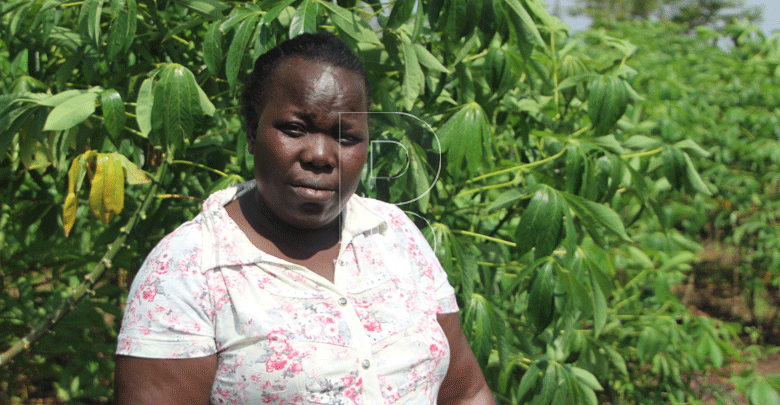A widow’s battle for her husband’s property

When her husband of six years passed away in 2009, Emily Odhiambo’s life became a nightmare trying to get the piece of land that belonged to him.
Her late husband left no will, they had no marriage certificate and she had no proof to enable her defend what was theirs.
Making the situation worse was the fact that they (with her late husband) had only daughters.
“My husband and I had three daughters. According to Luo traditions, girls do not inherit land,” she narrates
The death of her husband brought endless conflict with her brother-in-law over the land.
Three months after her husband died, Emily build a small house right where her husband’s homestead was, but in protest, her brother in-law built a home right in front of her structure.
“He told me that I couldn’t have a bigger piece of land because I have daughters while he has three sons. I was helpless and frustrated,” recalls Emily.
She was also mocked because of her status as a widow and was told to remarry, something which Emily was not considering, since her marriage with the father of her children had not been a walk in the park.
Gender violence
“I got married at the age of 19. Life at first was good as my husband took care of me and my children.
But then, he became a drunkard because I didn’t give him sons. He would beat me up and chase me from our home,” she recalls
One day while drunk, her husband kicked a tin lamp and the grass thatched house caught fire resulting to his death.Her turbulent marriage caused her daughters to detest men.
As a result, Emily decided he was not going to remarry, but focus on raising her daughters.
In 2013, Emily opted to go to the assistant chief for advice on how to get her share of land.
The assistant chief advised her that since the land in question belonged to her late father-in-law, they had to change the title deed first.
At first, her brother-in-law accepted to have the land change hands, but changed his mind later.
“His friends planted doubts in him telling him not to comply as I was not to be trusted and that I could snatch the entire piece of land from him,” she recalls
In 2017, a breakthrough came when her late husband’s younger sister required tuition fees to join university and selling part of the land was the only way to get the money.
“I didn’t have money to take her to school and neither did my brother-in-law. So, we agreed to sell part of the land.
It is when selling this piece, that we got a way to transfer the land from the father’s name to his and I knew the journey had started,” she says
But her brother in-law still refused to give Emily her share despite the fact that the land was now under his name.
She went back to the assistant chief who again advised her to look for a surveyor who could assess the land and have it divided.
A breakthrough came when her brother-in-law unknowingly gave her the title deed.
Emily then took a photocopy of it, and gave it to the chief and that’s how her journey to get land began. The surveyor was called and the land was divided into equal parts.
According to Kennedy Otieno Okach, an advocate with The Kenya Legal & Ethical Issues Network on HIV and Aids (KELIN), Article 45 of the constitution says that parties to a marriage are entitled to equal rights at the time of the marriage, during the marriage and at the dissolution of the marriage.
Sadly, despite having such laws in the constitution, the rights of women are still violated after the male spouse dies.
Changing social norms
“In the past, when the husband died, the society would ensure that the widow and her children were well taken care of and that no one would disinherit them from their land.
Widows were taken care of by the society, but presently some men violate these laws and instead of the continuity that existed in the past, they would get in their brother’s home, chase his widow and children away in order to satisfy their greed,” he explains
As a result, KELIN, a non-governmental organisation that was originally created to protect and promote HIV-related human rights, but has expanded its scope to also include women rights and property rights, has launched a campaign dubbed Securing Your Family’s Future (SYFF) to change social norms on women land tenure, which is negatively affected by misapplication of culture and thus leading to violations around women land rights.
Emily underwent this training, to empower herself on land right issue and also assist other young married women on accessing land and ensuring that they too are included in their husband’s title deed to safe guard their future should their spouse die.
“I was bitter before the training, but I learnt how to speak calmly and my brother-in-law was able to split the land and give me my share.
I can now access loans to develop myself or even take my children to school,” Emily says.












